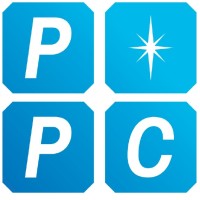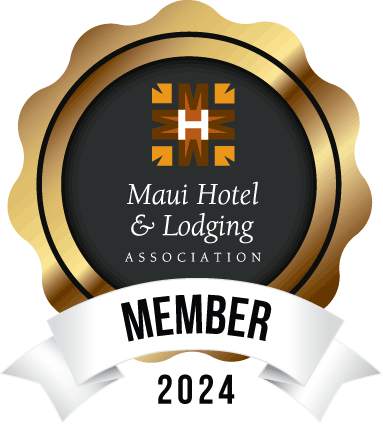
There are some in Hawai’i who still question the value of having their solar panels cleaned.
We often encounter this skepticism at Pacific Panel Cleaners LLC, (PPC) where we’ve been a leader in the industry since 2009 and operate on all the major islands. So, let me explain as PPC’s founder, why it is wise for system owners to protect their investment with regular cleaning combined with thorough maintenance inspections.
The first question that comes to mind is how much more energy (and therefore $-savings) will result from periodic cleaning and preventive care? Since many factors are involved, there is no set formula or simplistic answer. The design of the system is a significant factor. Is it a central inverter system, and if so is it sized “even” or with an over-capacity of 10% or maybe 20%? The design tells you something worth heeding when it over-sizes the system to help mitigate problems once the panels get soiled, as they invariably shall. The message is, “Keep those panels clean!” The North American Board of Certified Energy Practitioners states that soiling can rob a panel of 20% of its efficiency. Here at PPC we have seen even more extreme cases.
Another factor to consider involves micro inverters, which are underneath each panel. If, for example, a 215-Watt micro inverter has been attached to a 250-Watt panel, the installer has built into the system an over-capacity of 16%. The aim, again, is to offset both the predictable loss of panel efficiency due to soiling and the likelihood that the owner will be sloppy about maintaining the system. Both are reasonable assumptions.
The next effect to consider is the nature of the “soiling” in your area, predictable or unexpected. Is it due to accumulated layers of local dirt, algae, mold, bird droppings, tree sap, and salt settling on the panel over time? Or is the current soiling the result of wind-born residue from a building site where there’s excavation, sand work, or concrete laying? Either way, a panel’s efficiency can be profoundly reduced from any one of these factors. (See the before and after-cleaning photographs, below, Figs. 1 – 16.)
-

Figure 1: Mold, algae, leaves and dirt before.
-

Figure 2: After cleaning photo
-

Figure 3: Construction and factory dusting before
-

Figure 4: After the cleaning
-

Figure-5-Bird-droppings-on-the-panels
-

Figure-6-After-the-system-was-cleaned
-

Figure 7: Overview of fig. 5&6 panels with the bird droppings
-

Figure 8: Overview after cleaning
-

Figure 9: Flat panels with dirt build up
-

Figure-10-After-the-cleaning.jpg
-

Figure-11-Panels-next-to-ocean-452x372
-

Figure-12-After-panels-were-cleaned
-

OLYMPUS DIGITAL CAMERA
-

Figure-14-Now-you-see-what.jpg
-

Figure-15-These-panels-are-over.jpg
-

Figure-16-Same-panels-after.jpg
It’s not just that dirty panels will seriously lower efficiency, but whatever impairs them (like uric acid in bird droppings or salt in our island air) also takes its toll on the aluminum panel frames, exposed pipe work, and external wiring all of which when damaged can distort the system’s essential “balance”.
Among the locally sourced soiling and corrosive ingredients is that of VOG, or Volcanic Organic Gases, an intermittent feature of the Hawaiian Islands. This acid rain is created by mother nature on the Big Island, and for days on end can blanket the entire island chain including Kauai. Others have studied its corrosive effect on fences, vehicles, and buildings. For years, we at PPC have been coping with the effect of VOG on clients’ photovoltaic and solar panels. The problem with VOG is that it will accumulate undetected while it eats slowly away at the panel’s anti-reflective coating.
Figs. 17 and 18 show what also happens when drizzle or light rain (but not the flushing effect of a downpour) causes VOG-laden water to drip from the corner of panels beneath which the particulate concentrates and then corrodes. Pitting from VOG is frequently seen on panel frames, and over time the acid deposit will cause even USE 2-rated wiring to fade and become brittle appreciably faster than is normal.
-

Figure-17-Area-of-corrosion-at-drip-point
-

Figure 18: You can see the exact area of drip from the PV panels. The VOG had accumulated on then came off with rain.
Please Note: Figs. 17 and 18 were taken on a system which had not previously been cleaned and inspected. PPC began taking preventative measures years ago, and close inspection shows that professional intervention has halted the spread of the VOG-caused damage.
At the outset of this informative article we noted that whenever a system is designed with 10% or 20% over-capacity, its designer is in effect alerting the owner that neglected dirt on the panels will impair their efficiency by a significant amount. So, buyers beware!
Panel manufacturers also strike a warning note in their warranty guide that they are required to supply to the customer. In Section 5 of this guide is where you will find their recommendation that the panels should be cleaned annually, presumably no matter how clean or foul the local air might be. Thus, in the volcanic Hawaiian Islands’ comparatively harsh marine environment where salt laden air, VOG, uric acid bird-droppings, and other pollutants are unavoidable, it stands to reason that the manufacturer is giving sound advice.
Think of it this way: When your car manual advises changing the engine oil every so many thousand miles, only a cynic would suppose the recommendation is to help sell motor oil! On the contrary, it is part and parcel of the smart preventive maintenance of a costly vehicle. An oil change is cheap, but electricity from the Grid is certainly not, anywhere in the Hawaiian Islands. Consumers on Oahu are paying 30 cents a kilowatt hour, while on Maui, Hawai’i, and Kauai it’s 40 cents. On Molokai and Lanai currently it is 50 cents per kilowatt hour ….and there, as elsewhere, it will no doubt keep on rising. Hence the importance of maintaining your photovoltaic/solar system in top working order. Regular cleaning of the panels is the critical first step; at PPC we have seen an average of 7% to 10% efficiency gain on a number-to-number basis. But, cleaning itself is often not enough, and is especially so with systems that are three or more years old.
Only when the panels are properly clean can a close inspection then reveal a host of less visible factors that might already be robbing your system of full efficiency. If left undetected, these factors could potentially require major repairs. Figures 19 through 26 illustrate different types of panel blemishing, de-lamination, burn marks, and even manufacturing defects all which merit watching even if immediate attention and possibly replacement is not yet required. Time is of the essence.
-

Figure-26-Cell-deformation
-

Figure-25-Cell-deformation.jpg
-

Figure-24-Burn-mark-and-delamination.jpg
-

Figure-23-Burn-mark-with-delamination
-

Figure-22-Panel-blemishing-640x372
-

Figure-21-Panel-blemishing
-

Figure-20-Panel-blemishing-672x372
-

Figure-19-Panel-blemishing-300x200
It takes a fully certified professional to spot some of these defects in the panels themselves as well as to identify other issues the owner will want to know about, such as an installer’s initial error or ill-advised quick cut when laying out all else that goes into the making of a well-designed, balanced, and truly efficient system. Given your sizable investment, we are not talking here of something akin to mere window washing! Far from it. At PPC, we are fully certified, qualified, and experienced to provide maintenance services above and beyond the TLC cleaning of your precious panels.
Fredrick G Brooks, CEM,CEA
Pacific Panel Cleaners LLC Owner



